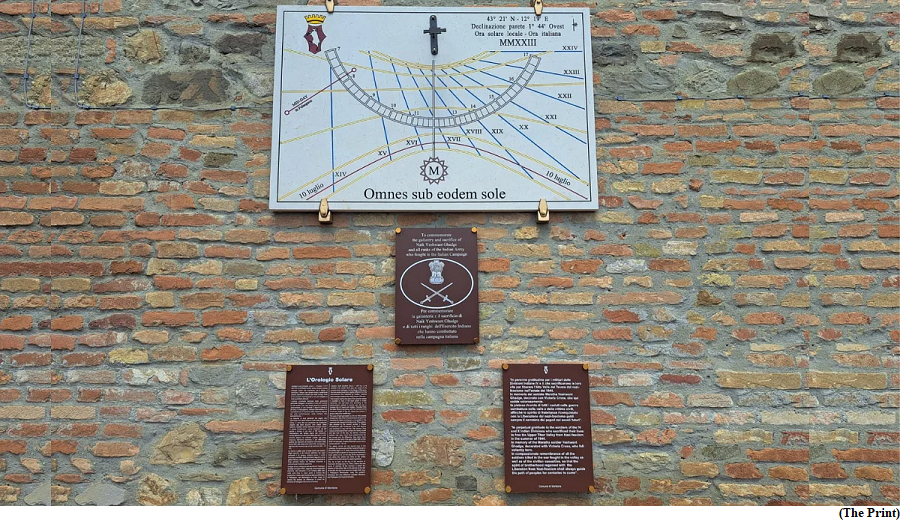Govt to launch Ayushman Bhav to achieve 100% coverage of health schemes (GS Paper 2, Health)

Why in news?
- The Union Health Ministry is planning to launch 'Ayushman Bhav' programme to ensure optimum delivery of all state-run health schemes to every intended beneficiary, including those in the last mile.
- Ayushman Apke Dwar 3.0, Ayushman Sabha, Ayushman Mela and Ayushman Gram are some of the activities planned under the programme.
Ayushman Apke Dwar:
- Ayushman Apke Dwar 1 and 2 drives have been conducted successfully.
- Under the Ayushman Apke Dwar 3.0, an intensive drive will begin from August 1 to ensure full saturation.
Ayushman Sabha:
- Ayushman Sabha will be a village-level campaign led by the village health, sanitation and nutrition committee to ensure the benefits of all the health schemes of the central and state governments reach the intended beneficiaries.
- These will also enhance awareness about the importance of Pradhan Mantri Jan Arogya Yojna (PMJAY) health insurance scheme cards and their distribution and generating Ayushman Bharat Health Accounts (ABHA) numbers.
- The campaign will also help in making people aware about the importance of utilising screening services for non-communicable diseases (NCD) and sickle cell disease through health and wellness centres and also about communicable diseases such as elimination of tuberculosis, among others.
- Ayushman Sabhas will be organised in each village where PMJAY cards will be distributed and information provided about PMJAY empaneled hospitals in the area and what all packages of treatments can be availed under the scheme.
Ayushman Mela:
- The third pillar of Ayushman Bhav programme, ‘Ayushman Mela’ will be held at the level of Ayushman Bharat Health and Wellness Centres (AB-HWCs). As part of it, medical camps will also be organised at medical colleges at community health centre level.
- There are 705 medical colleges, both in public and private sector. So each medical college may organise around 50 medical camps annually and target at least 300-400 OPD treatments.
- The aim of Ayushman Melas would be to build awareness on healthy behaviours and provide early diagnosis through screening, comprehensive primary health care services with drugs and diagnostics, teleconsultation with health specialists, and appropriate referrals with a special focus on marginalised people for a continuum of care.
- These will also be used for routine immunisation, NCD screening, mental healthcare, elderly care services, among others.
Ayushman gram:
- The fourth pillar Ayushman Gram is envisaged to achieve 100 per cent coverage of PMJAY card distribution, ABHA id generation, immunisation coverage, NCD screening, among others.
Italy honours Naik Yeshwant Ghadge
(GS Paper 2, International Relation)
Why in news?
- A memorial to commemorate the 50,000 Indian Army soldiers who fought for the liberation of Italy from Nazi occupation during the Italian Campaign in World War II was unveiled recently.
- The ‘V.C. Yeshwant Ghadge Sundial Memorial’ was unveiled at Montone in Perugia as a tribute to Indian troops who died in action during the Italian Campaign.

Italian Campaign:
- The soldiers were part of the 4th, 8th and 10th Divisions of the British Commonwealth forces that fought against the Axis powers — Germany, Italy and Japan.
- The Italian Campaign refers to the two-year campaign (1943-1945) by the Allied power, Great Britain, the US and the Soviet Union to liberate Italy from German occupation.
Recognition to Indian soldiers:
- Among the Indian soldiers who were honoured was Naik Yeshwant Ghadge. The memorial in his honour is a sundial that symbolises unity. Inscribed on it is the motto “Omines Sub Eodem Sole”, which translates to “we all live under the same sun”.
- Interestingly, of the 20 Victoria Crosses awarded in Italy, six were given to Indian soldiers.
- Indian soldiers suffered 23,722 casualties, of which 5,782 lost their lives and are commemorated in the 40 Commonwealth War Graves spread across Italy.
Naik Yeshwant Ghadge:
- The memorial unveiled was named after Naik Yeshwant Ghadge, Victoria Cross, who was killed in action fighting on the heights of Upper Tiber Valley on 10 July 1944, as a mark of honour.
- Naik Ghadge was a soldier of the Mahratta Light Infantry who served in Italy during World War II (1939-1945). He was only 22 when he died in action while fighting the Axis powers.
- He received the Victoria Cross posthumously in 1944.
- Following the breach of the German positions around Lake Trasimeno in mid-1944, the Allies advanced northwards towards the next major line of German defences, known as the Gothic Line.
- On 10 July 1944, while fighting in the Upper Tiber Valley, the ‘C’ Company that was dispatched to launch a strike against Point 624 came under heavy machine-gun fire, which killed everyone in the section except Naik Ghadge.
- The Company also lost its commander, Captain Madiman, and six others and had 15 more men wounded. Naik Ghadge was the only survivor in his section.
- His citation describes how he then charged at the machine gun post and threw a grenade that destroyed the machine gun and its operator. He then used his Tommygun to shoot another member of the gun crew. He had no time to reload his gun, so he used it as a club to kill the remaining two men of the gun crew.
- Hit by sniper bullets in the chest and back, Naik Ghadge at the post he had captured single-handedly for the Allies. As a result of his bravery, the Germans had to retreat from point 624, allowing the Mahrattas to move forward.
Parliamentary panel greenlights bill on disciplinary powers for future theatre commanders
(GS Paper 2, Polity and Governance)
Why in news?
- As the Indian military moves towards integrated theatre commands, a Parliamentary Standing Committee has given the nod to plans to bring in a law that will enable all existing tri-service and future theatre commanders to exercise disciplinary powers over personnel under them.
- The move comes 22 years after India created its first tri-service command, the Andaman and Nicobar Command.

The Inter-Services Organisations (Command, Control and Discipline) Bill:
- While the Defence Ministry introduced, ‘The Inter-Services Organisations (Command, Control and Discipline) Bill’, 2023 in March 2023, it was referred to the Parliamentary Standing Committee on Defence.
- The committee in its report has backed the bill and sought its passing without any amendments.
Why it matters?
- India is speeding up work on setting up two integrated theatre commands to take on Pakistan and China, with the first to come up opposite western borders, as well as a maritime theatre command.
- Personnel of the Indian Army, Navy and Air Force are governed in accordance with the provisions contained in their specific Service Acts, the Army Act 1950, Navy Act 1957, Air Force Act 1950.
- When these Acts were enacted, most of the service organisations were largely composed of personnel from a single service.
- However, presently there exist several inter-services organisations (ISO) such as Andaman & Nicobar Command, Strategic Forces Command, Defence Space Agency and joint training establishments like the National Defence Academy, and National Defence College, where personnel of different services work together.
- Despite the fact that several inter-services organisations are fully operational, the commander-in-chief or officer-in-command of the inter-services organisations are not empowered to exercise disciplinary and administrative powers over personnel belonging to other services.
Key Highlights:
- The new law will allow a commander-in-chief or officer-in-command of an inter-services organisation to exercise disciplinary powers over personnel of any service who are serving under or are attached to “his” command.
- Incidentally, the bill uses the pronoun “his” when referring to commanding officers rather than being gender neutral, even though the armed forces have now allowed women to take over command roles.
ISO:
- For the purpose of the bill, an ISO will have to be constituted/notified/declared based on the capability of the organisation to execute requisite disciplinary powers.
- For instance, the Andaman and Nicobar Command, the tri-services theatre command of the Indian Armed Forces, is still not ‘constituted’/notified as an ISO for the purpose of the bill.
- The Central government, after enactment of the bill, has the power to “constitute” an organisation or unit or establishment as ISO, depending on its wherewithal to execute the mandate of the bill, the committee added.
Way Forward:
- The enactment of the Bill will herald greater integration and jointmanship in inter-services organisations or establishments.




